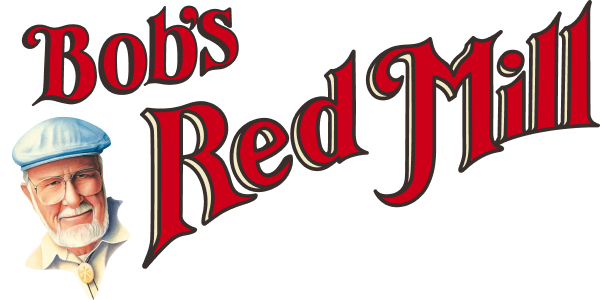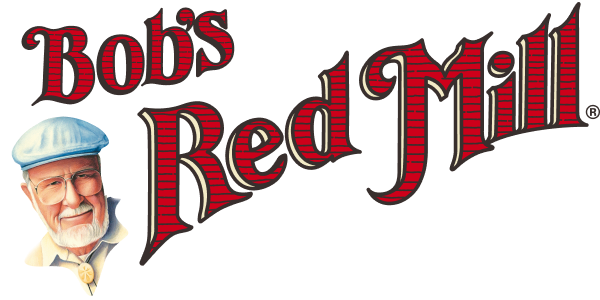


We have all heard the word kosher before--in fact, it has recently entered into colloquial English as a way to describe anything that is okay or acceptable in any forum. If you're not of the Orthodox Jewish tradition, you may not truly understand what the word kosher means, but it actually comes from strict Biblical law outlined in the Talmud; the text that lays out the Jewish laws and doctrines. If you or anyone you know is keeping kosher, then you definitely have some idea of how strict it can be, but there are some helpful labels and marketing tools that are used to help those keeping kosher to know which foods will be okay for them to eat. Keep reading to learn more about the kosher certification process and how Bobs Red Mill has ensured that all of our products are acceptable for anyone keeping kosher.
Kosher food is food that is deemed acceptable for consumption by the Kashrut, or laws governing food, which are found in the Talmud. The reasoning for keeping kosher is not specifically outlined in the texts, but some suggest it is for hygienic or philosophical reasons, whereas some scholars claim that it is simply a test of mans obedience. Either way, about one-sixth of the Jewish population in America keeps kosher, so there is a large need to differentiate between kosher and non-kosher foods. The main laws for kosher consumption are that meat and dairy cannot touch at any point during the production or consumption process. Kosher also prohibits one from eating pork or shellfish and requires that all mammals and birds are slaughtered in a specific way known as shechita. There are some nuances, of course, but these are the basic principles, with the first being the most difficult to manage in most cases. Think about meat and dairy not being able to touch: no cheeseburgers. However, it is not that simple. Due to the restrictions on production, the meat and dairy can never be on the same counter spaces, touch the same cutlery, or even be washed in the same dishwasher. Many households that keep kosher have separate dishwashers, sinks, and even refrigerators to help them abide by the kosher laws. Overall, it can be a tough process to figure out if you are new to it, or if you are trying to help your friends who keep kosher feel more comfortable in your home.
Though the idea of meat cannot touch dairy may seem like a simple concept, the actuality of keeping kosher is fairly complex. Dairy foods, for instance, may not come into contact with meats or meat products throughout any stage of its production, nor may any of the ingredients within the dairy product. You may think that food like cereal would automatically be safe, as it contains no dairy and no meat. However, the raisins in your cereal may be coated with an animal-based glycerin, which is not kosher, and therefore the entire cereal will be deemed not kosher. When kosher laws were set forth over 3,300 years ago, most people were likely farming, growing, or raising their own foods, or at least knew who was doing so. In this day and age, however, it is really tough to know exactly where your food comes from, what is in it, or how it is produced. This is exactly why the kosher certification exists, and there are a few different agencies that certify kosher foods. Some people think that the kosher term simply means the food has been blessed by a rabbi, but that is simplifying the process significantly, as there are a myriad of laws and regulations that must be met before a food can be certified as kosher. With the kosher certification label, you can relax because you will know that what you are buying meets all the standards set by Jewish teachings.
Like we mentioned earlier, the kosher certification process requires a lot of regulations be met in the production of your food. For a finished product to be certified, every unit and subunit of the product must be certified kosher. The milk in kosher cheese must come from a kosher cow, and any additional items made with that cheese must also be certified kosher. In order to get a product certified, the agencies send inspectors to each facility involved in the entire production process, from the farm to the mill to the packaging facility, and everywhere in between. For a restaurant or food service organization to be considered kosher, the inspector must not only determine that all the food served is kosher, but also that the food is served in a way that follows kosher rules. The food cannot come into contact with other prohibited foods, it cannot mix meat and dairy even on the same plate, and it may not be served in non-kosher packaging: a kosher hot dog served in a non-kosher basket is still not kosher. At Bobs Red Mill, all of our facilities and products have been deemed kosher certified, as we have gone through this process many times!
All kosher foods fall into one of three categories, meat, dairy, and pareve, and have slightly different standards.
Meat
The meat must come from an animal that chews its cud and has split hooves (goat, cow, and sheep are all kosher, whereas things like rabbit and kangaroo are not). Pork is not considered an acceptable part of a kosher diet, nor is shellfish. The Torah expressly forbids any wild fowl or scavenger birds, but things like domesticated chicken, game hen, and ducks are okay. As mentioned earlier, the animals must be slaughtered in a certain way and prepared in a way that removes all of the animals blood. And as always, every utensil, machine, packaging supply, or item used in this process must also be kosher.
Dairy
Dairy is considered to be any food that contains milk, even a small amount. All dairy must come from a kosher animal, not contain any meat products (gelatin is an example of a product that may conventionally be used in dairy but not in kosher dairy), and be processed and produced using only kosher equipment.
Pareve
Pareve kosher foods are literally just anything that does not fall into either the meat or the dairy category. This includes things like fruits and vegetables, eggs, fish, or grains. There are some small considerations, but mostly the inspectors just need to make sure that there are no non-kosher foods that are processed with the pareve foods during production, growth, processing, or packaging. Insects and larvae are not considered to be kosher, so produce has to be checked thoroughly to ensure no insects or larvae are inside. Eggs have to be checked for blood spots, as that would disqualify them from a kosher diet. Typically, these foods are simpler to classify as kosher than meats or dairy, though, and they may be served with either meat or dairy (but obviously not both).
Wine
Wine is a slightly different story than other kosher foods. You remember when we told you that kosher foods were not simply blessed by a rabbi? That is definitely not true, but in the case of wine, it is kind of almost true. In fact, for a wine to be classified as kosher, not only does it need to include 100% kosher ingredients and processes, but it must be completely produced by Torah-observant Jews. Thus, all kosher wine will fall into the kosher category, but not all wine with kosher ingredients will be considered kosher.
Passover
Passover is an eight-day Jewish holiday celebrating the liberation of Jewish people from slavery in Egypt. It is perhaps the most important of the Jewish holidays and typically is celebrated with a Seder meal. During Passover, the typical kosher laws are extended, and no leavened products may be eaten throughout those eight days. The significance of this comes from the story of the original Passover, in which Jewish families had to leave Egypt abruptly for their journey out of slavery, and did not have time to wait for the bread to rise. Thus, to keep kosher during Passover, you must only eat unleavened bread (you may know it as matza), even though certain leavened bread can be considered kosher during the remainder of the year. At Bobs Red Mill, we understand the importance of keeping kosher for all of our Jewish friends and family, so all of our products are certified kosher, and many are certified organic as well. As part of Bobs Way, we try to create pure, clean, and natural products that anyone can eat, no matter what their dietary restrictions are. The kosher certification, while complex, is an extremely helpful indicator so that anyone who is keeping kosher can feel safe consuming or utilizing any of our products in their cooking.